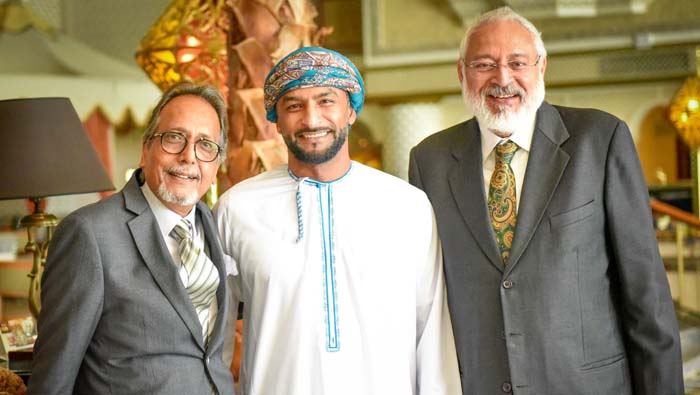
Muscat: Come September, Paradise Valley Private School (PVPS) will open its doors in Muscat to provide equal learning opportunities and support to all children, including students with special needs.
In Muscat for less than 24 hours, Advisor to the Board of Directors of PVPS and the founder of Pallavan Learning Systems, the curriculum provider, Arun Kapur took some time off to speak to Times of Oman. “We are not looking to be different, to be special. We are just looking to give your child the best possible education, the best growing up experience that he or she needs.”
The demand for high-quality education among Omanis and expatriates in the Sultanate is what led to the birth of PVPS, said Mahesh Verma, Managing Director of Paradise Sprig Investment Management Co. (Owner of Paradise Valley Private School) and President of the School Management Committee.
If there is one way that PVPS intends to make a difference, it is to bring back education into schooling, said Kapur.
He added, “A distinction that I find people are not willing to make is the one between schooling and education.
“Schooling has become an end in itself, and all across the world, we have become over-schooled and under-educated. Our job at Paradise Valley Private School is to try and change that.”
Recognising that each child may have different needs and that all children have the potential to be the best they can, given the right kind intervention is what PVPS is all about.
Kapur said the idea is to ‘curate experiences and processes for each child as their needs are very individualistic’, and it is of utmost importance to ‘bring the children with special needs into the light with the rest’.
The value of socialisation between what is typically called mainstream and special needs children cannot be underestimated, and each will have something to learn from the other.
Occupational therapy and speech and language therapy will be provided as required and the curriculum can be adapted or modified according to the student’s needs, be it academic and/or functional life skills.
Curriculum
The school will follow the curriculum as recommended by the International Baccalaureate Organisation as an applicant for IB candidacy. Kapur is very clear on the point that theirs is not going to be the standard international school.
“I wouldn’t call Paradise Valley an international school. It is an Omani school in that we will make sure that the children, irrespective of nationality, learn about Oman. We intend to focus on promoting the local language and culture.”
PVPS will offer Arabic Language Studies, Islamic Studies Programme and Social Studies in Arabic for Arabic speakers, and for other students who may wish to opt for such instruction.
Operating out of rented premises at the moment close to Al Mouj Muscat, Verma says that they will move into their own purpose-built campus in about three years.
“We are starting with Kindergarten to Grade 3, but we have allocated space that will be needed by Grade 4 and 5 in the next two years. There will be no gap in the child’s education.”
Starting with Primary Years Programme (Kindergarten to Grade 3) in September 2019, the school will gradually grow into a full-fledged school offering Middle Years, Diploma and Career Programmes. Responding to questions about the fee structure of the school, given the current economic scenario, Verma responded, “What is the one thing you never compromise on, even in a recession? Your children’s education. Our fees fall in the mid-range compared to other schools in Oman.” Added Kapur, “Our fees have been deliberately kept at a point that we believe will be affordable for most middle-class people.”
With a 1:8 Teacher-Student ratio, an inclusive culture, PVPS will follow the philosophy of Pallavan Learning Systems: A holistic education based on Five Areas of Development - Cerebral, Emotional, Ethical, Physical and Social.
An educator with more than 40 years of experience, the founding director of the Royal Academy of Bhutan (since 2008) and founding headmaster of the hugely successful Vasant Valley School in India (1990), Kapur said, “Our teachers will not go into the classroom to teach. They will go in there to help the children learn. It may sound like a cliché, but it makes all the difference in the world.”